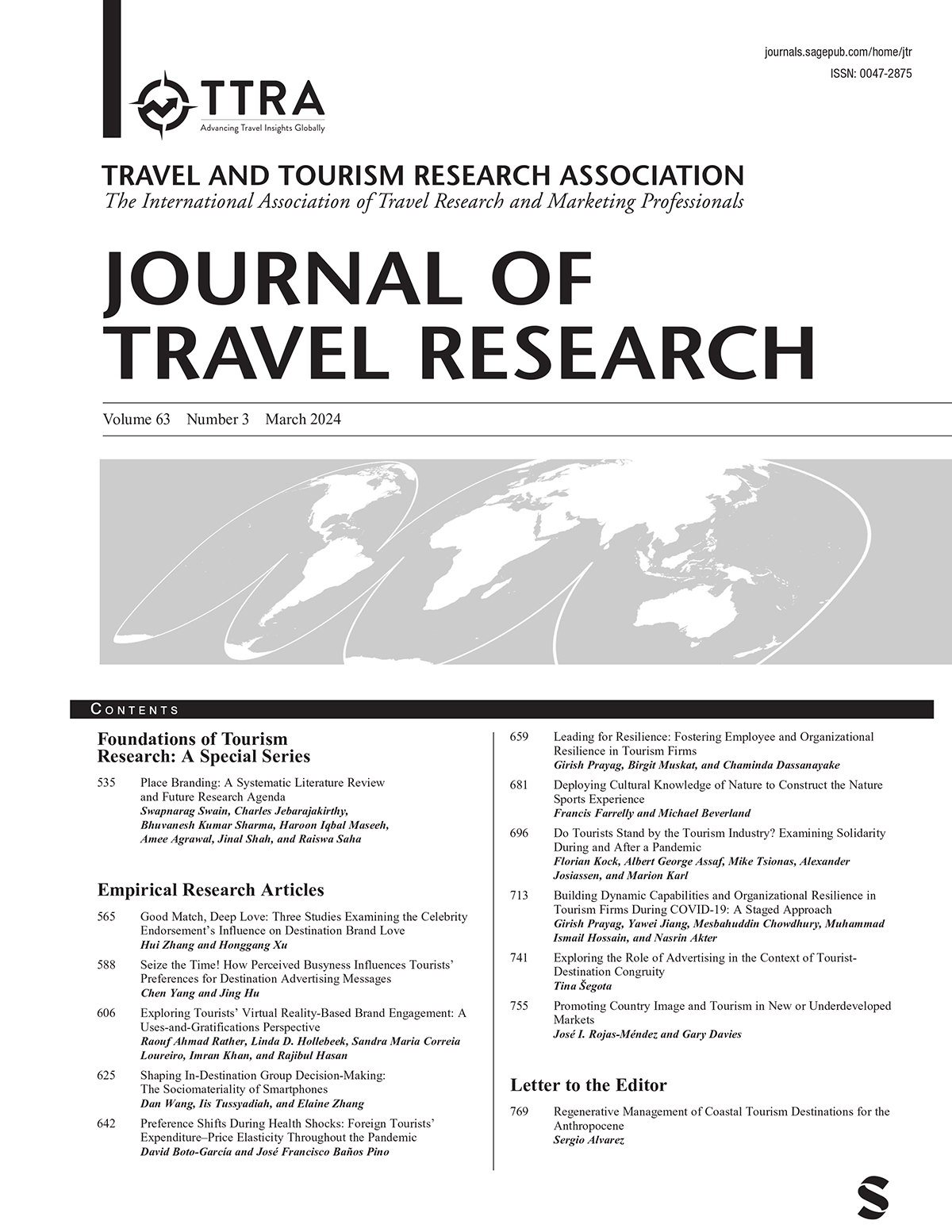What Makes Tourists Use Public Transport? Value-Belief-Norm Theory, Environmental, Social, and Governance Factors, and the Sustainable Development Goals
IF 7
2区 管理学
Q1 HOSPITALITY, LEISURE, SPORT & TOURISM
引用次数: 1
Abstract
Fifty percent of emissions must be cut by 2030 and net zero emissions by 2050 to keep global warming below 1.5°C. Transport is a major component of tourism’s contribution to climate change. Therefore, encouraging tourists to use less energy intensive public transport is an important strategy in reducing tourism emissions. Despite the crucial role of public transport for sustainable tourism, the area remains substantially under researched and theoretically uninformed. To fill the research gap, an extended-value-belief-norm (EVBN) model was created and assessed, including environmental, social, and governance (ESG) factors, air quality, and climate change, and comparing the Sustainable Development Goals (SDGs) groups of fair distribution, efficient allocation, and sustainable scale. Results revealed that an EVBN model well explains tourist behavior for public transport, showing the significant distinct effect of ESG components and SDG groups in the research model, and providing theoretical and managerial insights with respect to tourist use of public transport.是什么让游客使用公共交通工具?价值信念规范理论、环境、社会和治理因素与可持续发展目标
到2030年必须减少50%的排放,到2050年必须实现净零排放,以将全球变暖控制在1.5°C以下。交通是旅游业应对气候变化的主要组成部分。因此,鼓励游客使用能源密集度较低的公共交通工具是减少旅游排放的重要策略。尽管公共交通在可持续旅游业中发挥着至关重要的作用,但该地区的研究仍然严重不足,理论上也一无所知。为了填补研究空白,创建并评估了一个扩展价值信念规范(EVBN)模型,包括环境、社会和治理(ESG)因素、空气质量和气候变化,并比较了公平分配、高效分配和可持续规模的可持续发展目标组。结果表明,EVBN模型很好地解释了游客对公共交通的行为,显示了研究模型中ESG成分和SDG群体的显著不同影响,并为游客使用公共交通提供了理论和管理见解。
本文章由计算机程序翻译,如有差异,请以英文原文为准。
求助全文
约1分钟内获得全文
求助全文
来源期刊

Journal of Travel Research
HOSPITALITY, LEISURE, SPORT & TOURISM-
CiteScore
18.90
自引率
9.00%
发文量
66
期刊介绍:
The Journal of Travel Research (JTR) stands as the preeminent, peer-reviewed research journal dedicated to exploring the intricacies of the travel and tourism industry, encompassing development, management, marketing, economics, and behavior. Offering a wealth of up-to-date, meticulously curated research, JTR serves as an invaluable resource for researchers, educators, and industry professionals alike, shedding light on behavioral trends and management theories within one of the most influential and dynamic sectors. Established in 1961, JTR holds the distinction of being the longest-standing among the world’s top-ranked scholarly journals singularly focused on travel and tourism, underscoring the global significance of this multifaceted industry, both economically and socially.
 求助内容:
求助内容: 应助结果提醒方式:
应助结果提醒方式:


